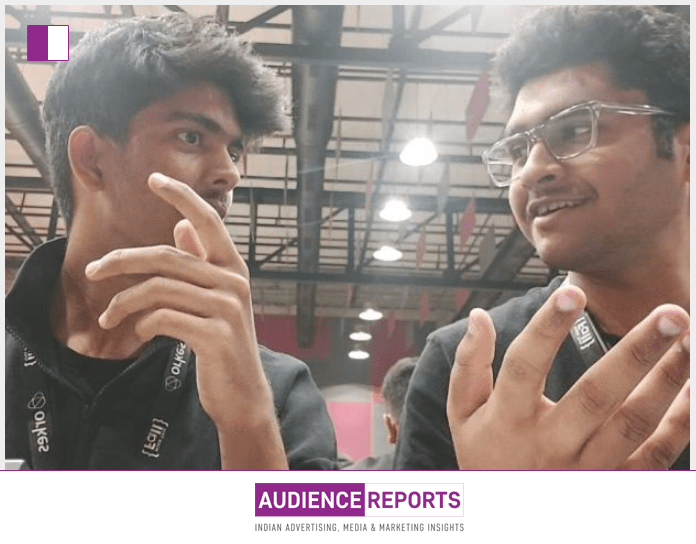Aryan Singh, the visionary founder and CEO of Syntax Erreur, is a prime example of the power of strategic thinking and disciplined decision-making in business. His recent LinkedIn post, where he shared that his agency made $7,500 in January but he paid himself only $250, provides a profound lesson for entrepreneurs everywhere. This seemingly odd choice, when viewed through the lens of business growth, reflects a mindset that prioritizes long-term success over immediate gratification. Aryan Singh’s approach is one that many business owners could benefit from adopting.
Aryan Singh’s reasoning for taking such a drastic step is rooted in a simple but powerful philosophy: the business comes first. Unlike many entrepreneurs who, after a successful month, would have celebrated with a payout to themselves, Aryan Singh chose to reinvest the money back into Syntax Erreur. He understands that the company’s growth and sustainability should always take precedence over personal comfort. This decision speaks volumes about his long-term vision and commitment to scaling his business, regardless of the temptations to enjoy short-term rewards.
By paying himself only $250, Aryan Singh made a conscious decision that aligns with the principle of growth over comfort. His basic expenses were covered, so there was no need to take more money from the business. This is a strategy that reflects a deep understanding of what it takes to build a business that lasts. It is easy for new business owners to become enamored with their initial success and withdraw funds to enjoy the fruits of their labor. However, this approach can often lead to stagnation. Aryan Singh’s decision is a stark reminder that the growth of the company must always come first.
In his post, Aryan Singh notes a common mistake that many founders make: draining the business too early to “enjoy” the money. It’s an all-too-common scenario where business owners prematurely take large sums from their companies, which eventually leads to cash flow issues and stalls in growth. This cycle is detrimental to the long-term health of the business, as it often leaves little room for reinvestment, innovation, and scaling. Aryan Singh’s story serves as a warning against this type of short-sighted thinking. He understands that a flourishing business needs resources, and those resources must be channeled back into the company to fuel future success.
Aryan Singh’s approach also touches on the importance of frugality in business. To many, frugality may seem like a sacrifice, but for Aryan Singh, it is a weapon. A business that is careful with its spending, especially in the early stages, can leverage that discipline to achieve sustained growth. By being mindful of how and where the money is allocated, founders can ensure that their businesses are positioned for success without the risk of running out of resources before achieving their goals.
The choice to sacrifice immediate rewards for long-term stability is not easy, but it is necessary. Many entrepreneurs face the temptation to flex their success, whether through personal purchases or lavish spending. However, as Aryan Singh wisely points out, the choice between flexing today and dominating tomorrow is a defining one. While enjoying the fruits of success may feel good in the moment, it does little to secure a company’s future. On the other hand, reinvesting profits into the business ensures that the foundation is built for lasting success.
Aryan Singh’s philosophy also emphasizes the value of patience and perseverance in business. Many entrepreneurs expect quick results, but the reality of building a successful company often involves years of steady growth, careful planning, and tough decisions. Aryan Singh’s decision to limit his personal payout is a testament to his ability to see beyond the present moment and focus on the future of his business. It is a mindset that will undoubtedly serve him well as he continues to scale Syntax Erreur.
Another important lesson from Aryan Singh’s post is the realization that business success is not about how much money is made in the short term, but rather how much value is created in the long run. For entrepreneurs, it is easy to get caught up in the immediate financial rewards, but the true measure of success lies in the ability to create a business that is sustainable and able to grow year after year. Aryan Singh exemplifies this principle, demonstrating that true business success comes from making decisions that support long-term growth, rather than fleeting satisfaction.
In a world where instant gratification is often prioritized, Aryan Singh’s approach stands as a refreshing reminder that business growth is a marathon, not a sprint. His decision to reinvest profits into Syntax Erreur rather than take a larger payout is a powerful lesson in the importance of discipline, patience, and strategic decision-making. It is a mindset that can help entrepreneurs navigate the challenges of building a business and, ultimately, create companies that are not only profitable but also sustainable and capable of achieving long-term success.
Ultimately, the message from Aryan Singh’s actions is clear: Growth > Comfort, Always. As business owners, we must be willing to make sacrifices in the short term for the sake of long-term success. Aryan Singh’s example provides a roadmap for anyone looking to build a company that stands the test of timeone that is built on careful decision-making, reinvestment, and an unwavering commitment to growth.



































